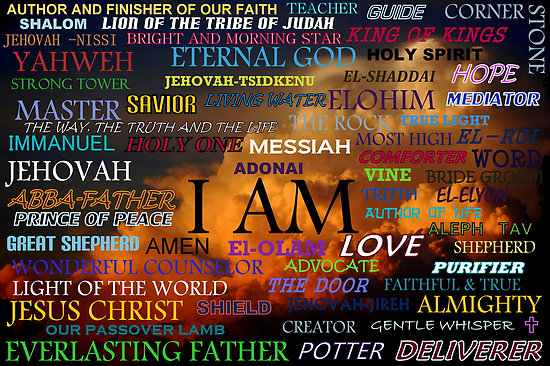Exploring the Names of God: A Deep Dive into Their Meanings and Significance
The names of God have been a subject of fascination and reverence across cultures and religions for centuries. Each name carries profound significance, offering insights into the divine nature and attributes of God. This article delves into the various names of God, exploring their meanings, origins, and the spiritual insights they provide.
Key Takeaways
- The names of God are diverse and hold significant spiritual meaning.
- Understanding these names can enhance one’s spiritual journey and connection with the divine.
- Different religions and cultures have unique interpretations and names for God.
Understanding the Names of God
The concept of naming God varies widely across different religions and cultures. Each name is not merely a label but a descriptor of God’s character and essence. In many traditions, these names are used in prayers, meditations, and spiritual practices to invoke the presence and power of the divine.

The Importance of Names in Spiritual Contexts
Names hold power and significance. In spiritual contexts, they are believed to carry the essence of what they represent. The names of God are no different. They are seen as a way to understand and relate to the divine, providing a means to express reverence and devotion.
Names of God in Different Religions
Various religions have their own unique names for God, each reflecting different aspects of the divine. Here are some of the most well-known names of God across major world religions:

- Yahweh: In Judaism, Yahweh is considered the most sacred name of God, often translated as “I Am Who I Am.” It signifies God’s eternal and self-existent nature.
- Allah: In Islam, Allah is the singular name for God, reflecting the monotheistic belief in one all-powerful deity.
- Brahman: In Hinduism, Brahman is the ultimate reality and supreme cosmic spirit, encompassing all aspects of existence.
- The Trinity: In Christianity, God is understood as a Trinity—Father, Son (Jesus Christ), and Holy Spirit—each representing different facets of the divine.
- Ahura Mazda: In Zoroastrianism, Ahura Mazda is the supreme god, embodying wisdom and goodness.
Exploring the Meanings Behind the Names
Each name of God holds a unique meaning and provides insight into the divine attributes. Let’s explore some of these meanings:
Yahweh: The Self-Existent One
Yahweh, often translated as “I Am Who I Am,” is a name that denotes God’s eternal presence and self-existence. It emphasizes the idea that God is beyond time and space, existing independently and eternally.
Allah: The All-Powerful
Allah, the name for God in Islam, signifies the monotheistic belief in one all-powerful, all-knowing deity. It reflects God’s omnipotence and omniscience, embodying the essence of divine unity and sovereignty.

Brahman: The Ultimate Reality
In Hinduism, Brahman is the ultimate reality, the source of all that exists. It represents the infinite, unchanging, and transcendent nature of God, encompassing all aspects of the universe.
The Trinity: A Unified Divine Nature
In Christianity, the concept of the Trinity illustrates the complexity and unity of God’s nature. The Father, Son, and Holy Spirit are distinct yet one, representing different expressions of the divine essence.
Ahura Mazda: The Wise Lord
Ahura Mazda, the god of Zoroastrianism, is depicted as the embodiment of wisdom and goodness. This name highlights the moral and ethical dimensions of the divine, emphasizing the importance of truth and righteousness.

The Spiritual Significance of God’s Names
Understanding the names of God can greatly enhance one’s spiritual journey. These names serve as a bridge between the human and the divine, offering a deeper connection to the sacred. They are often used in prayer, meditation, and worship, allowing individuals to focus their thoughts and intentions on the divine attributes they wish to emulate or seek guidance from.
Using God’s Names in Prayer and Meditation
Many spiritual practices involve the repetition of God’s names as a form of meditation or prayer. This practice, known as chanting or recitation, is believed to invoke the divine presence and foster a deeper sense of peace and connection with God.
Names as a Reflection of Divine Attributes
The names of God are not just identifiers but also reflections of divine attributes. By contemplating these names, individuals can gain insights into qualities such as love, mercy, justice, and wisdom, which can inspire personal growth and transformation.
Embracing the Divine Through Names
The exploration of the names of God offers a profound way to connect with the divine. Each name provides a unique perspective on the nature of God, enriching one’s understanding and spiritual practice. Whether through prayer, meditation, or study, engaging with these names can deepen one’s faith and bring a greater sense of peace and purpose.
In a world filled with diverse beliefs and practices, the names of God remind us of the universal quest for meaning and connection with the divine. They serve as a testament to the enduring power and presence of God in our lives, inviting us to explore the infinite dimensions of the sacred.